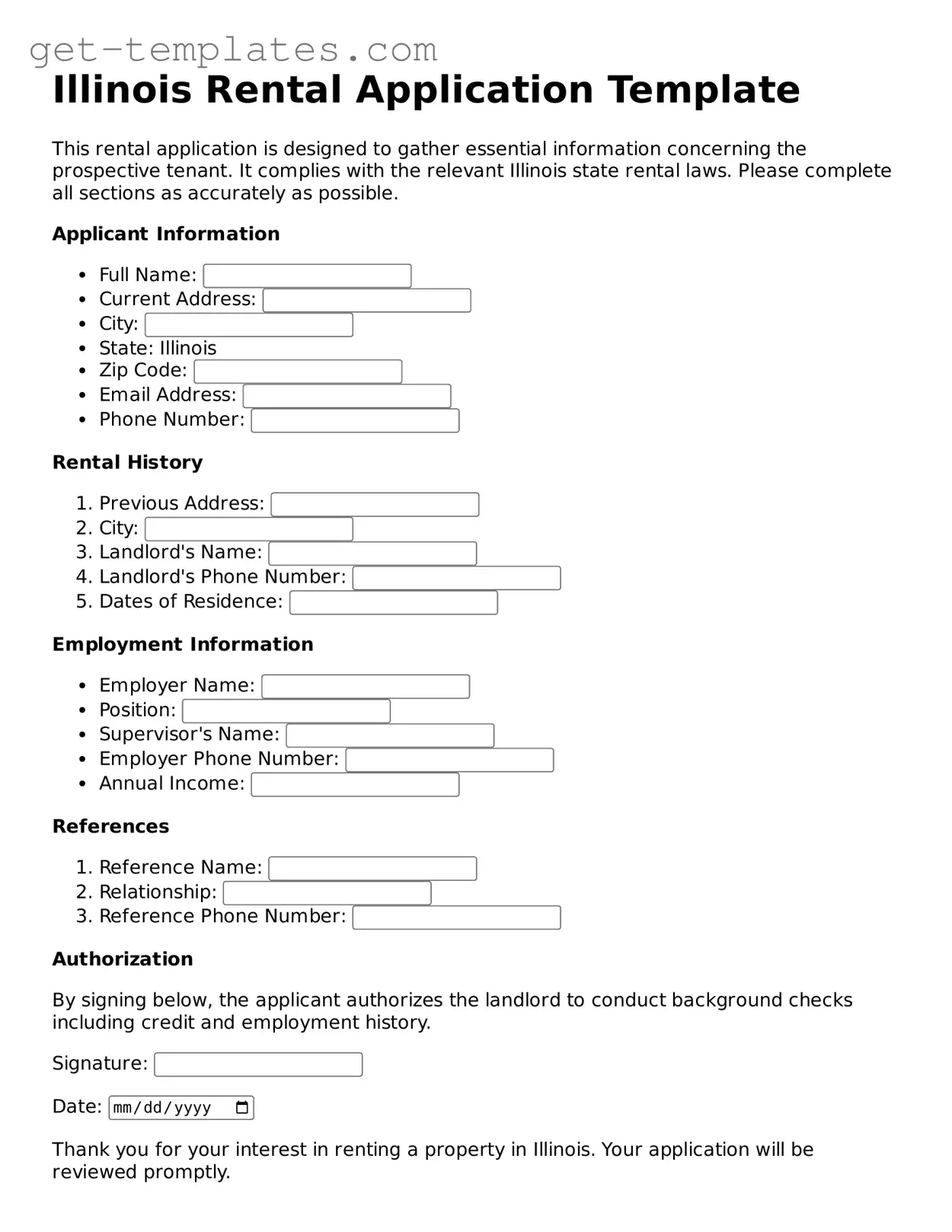The Illinois Rental Application form is a document used by landlords to collect information from prospective tenants. This form typically includes personal details, rental history, employment information, and references. It helps landlords assess the suitability of applicants for their rental properties.
When filling out the Illinois Rental Application, you will generally need to provide the following information:
-
Your full name and contact information.
-
Social Security number or other identification numbers.
-
Employment details, including your employer's name and contact information.
-
Rental history, including previous addresses and landlord contact information.
-
References, which may include personal or professional contacts.
-
Financial information, such as income and any other sources of revenue.
Is there a fee associated with the application?
Many landlords charge an application fee to cover the costs of background checks and processing. This fee can vary widely depending on the landlord or property management company. It is important to inquire about the amount before submitting your application, as well as whether it is refundable.
What happens after I submit my application?
Once you submit your application, the landlord will review the information provided. They may conduct a background check, which could include a credit check and verification of your rental history. You may be contacted for additional information or clarification. The landlord will then make a decision based on the results of these checks and may inform you of their decision within a few days.
Can I appeal if my application is denied?
If your application is denied, you may have the right to ask for an explanation. Some landlords provide a reason for the denial, while others may not be required to do so. If you believe the denial was unjust, you can discuss the matter with the landlord or property manager. Additionally, you may want to review your credit report for any inaccuracies that could have affected the decision.
What are my rights regarding the application process?
As a prospective tenant, you have certain rights during the application process. Landlords cannot discriminate against you based on race, color, religion, sex, national origin, familial status, or disability. Additionally, they must handle your personal information confidentially and responsibly. If you believe your rights have been violated, you may wish to seek legal advice or contact a local housing authority.

